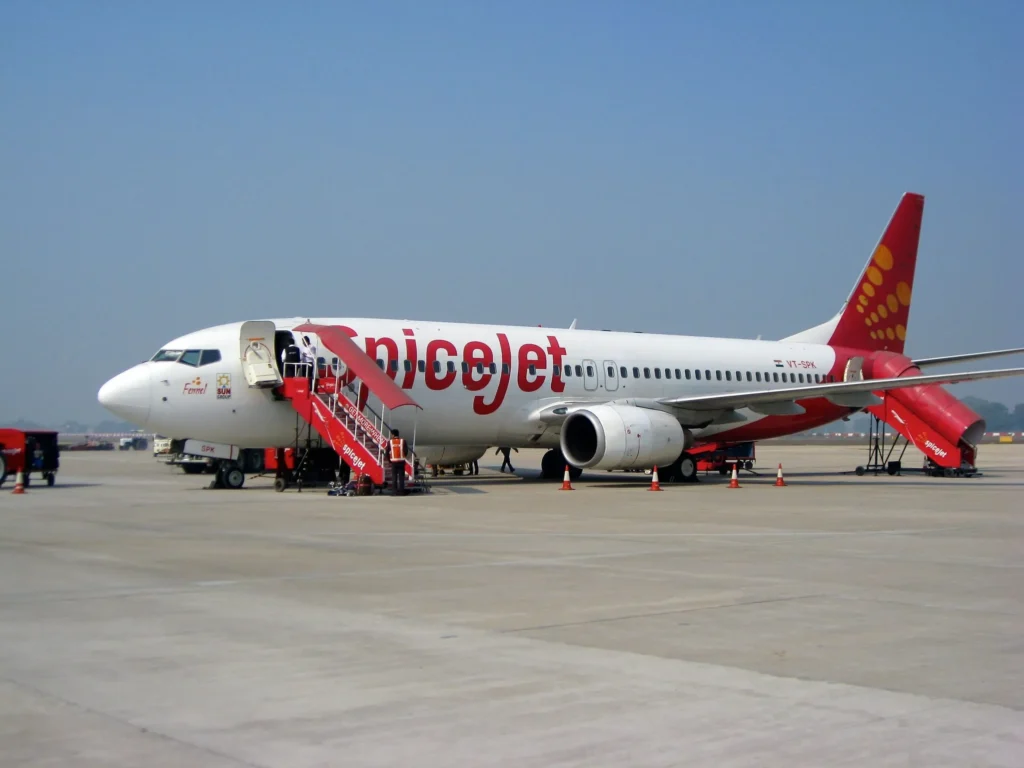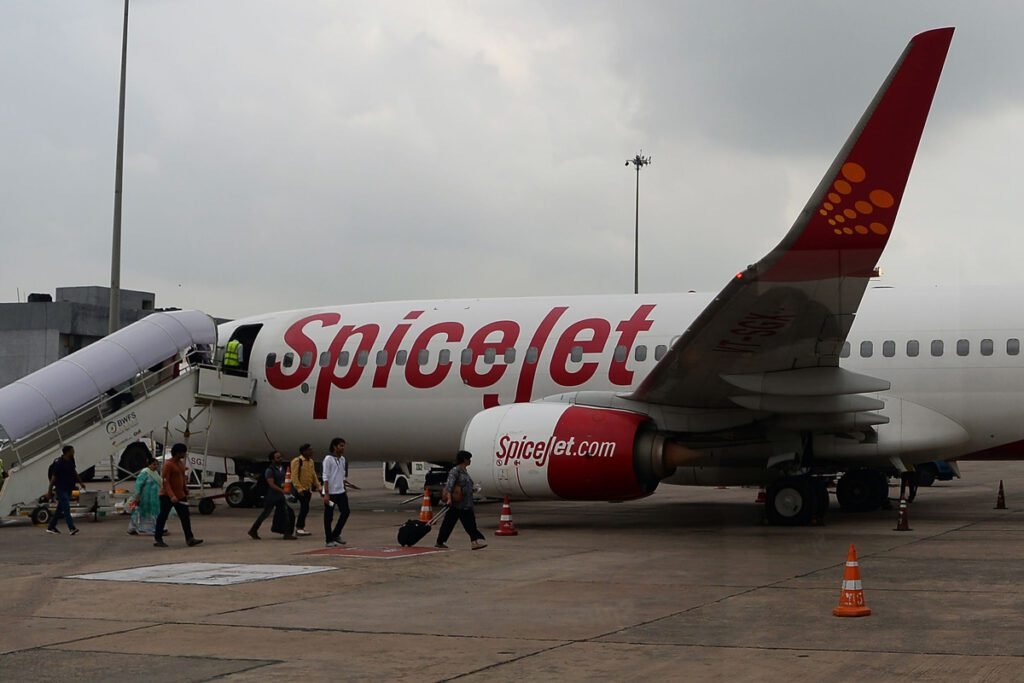Air travel is often seen as the fastest and most convenient way to reach international destinations. However, passengers of a Dubai flight from Mumbai were left frustrated and exhausted after their flight was delayed by a shocking 10 hours. While flight delays are not uncommon, what made this situation worse was the lack of clear information and proper facilities provided to stranded passengers.
This incident not only highlights operational lapses but also raises important questions about how airlines handle delays and the treatment of passengers during such unexpected disruptions.
Passengers stranded for 10 hours: A nightmarish experience
When passengers arrived at Chhatrapati Shivaji Maharaj International Airport, Mumbai, they expected to board their Dubai flight on time and reach their destination by evening. Instead, they found themselves waiting endlessly in crowded terminals with little to no updates from the airline staff.

For many travelers, including families with children and elderly passengers, the experience turned into a nightmare. Lack of sleep, inadequate seating, and poor food arrangements made the ordeal even more challenging.
One passenger shared, “We were not informed properly. We kept asking the ground staff, but they either did not have answers or gave vague replies. It was extremely frustrating.”

Lack of information: The biggest complaint
When a flight gets delayed, passengers look for regular updates to plan their next steps. However, in this case, the passengers repeatedly complained about the lack of clear communication from the airline.
Several passengers mentioned that the flight information display boards did not show updated timings for hours. Announcements over the public address system were rare and often unclear. Many travelers had to rely on rumors and other passengers for updates, which only fueled anxiety and confusion.
A senior traveler said, “I understand that technical issues can happen, but we need to be informed. We were just left in the dark. That is unacceptable.”

Inadequate facilities add to passengers’ misery
While delays can be unavoidable, providing basic amenities to stranded passengers is the responsibility of airlines and airports. In this incident, the lack of proper facilities became a major source of discomfort.
Many passengers complained about the shortage of comfortable seating and resting areas. Those traveling with children found it particularly hard to manage in a crowded and noisy environment.
There were also complaints about the lack of drinking water and poor food quality provided by the airline. A young woman traveling with her mother said, “We were given food packets after hours of waiting, but they were cold and tasteless. Even water was not easily available.”
Emotional and financial impact on passengers
Travel delays can have emotional and financial consequences. Passengers on this Dubai flight had various commitments — business meetings, family reunions, connecting flights, and even important medical appointments.
One businessman expressed his frustration, saying, “I had a crucial meeting in Dubai. Because of this delay, I might lose a significant business opportunity. Who will be responsible for this loss?”
For families traveling for leisure or family events, the delay meant losing precious time and added expenses for accommodation and rebooking plans.
Airline response: Too little, too late
When finally confronted, airline representatives cited “technical reasons” for the delay. However, they failed to provide specific details or a concrete timeline throughout the ordeal.
A few passengers reported that airline staff were unprepared to handle the crowd and seemed unaware of standard protocols for assisting passengers during long delays.
Even after 10 hours, some passengers claimed that they received no formal apology or compensation offer. This further deepened the sense of dissatisfaction and anger among travelers.
Legal rights of passengers: Are they being ignored?
According to the Directorate General of Civil Aviation (DGCA) guidelines in India, passengers have specific rights during delays. These include proper meals, refreshments, and hotel accommodations (if the delay is significant).
However, in reality, many passengers are unaware of these rights or feel helpless when airlines fail to comply.
Legal experts suggest that passengers should demand written clarification from airlines and lodge formal complaints with the DGCA if necessary. However, in moments of distress, many travelers do not have the energy or resources to take such steps.
Human stories behind the headlines
Beyond numbers and official statements, it is important to understand the human aspect of such incidents. Among those affected on this delayed Dubai flight were elderly passengers who needed medication on time, children who became restless and irritable, and solo travelers who felt unsafe and anxious.
A mother traveling alone with two small children shared her ordeal: “I was constantly trying to calm my kids while struggling to get any information from the staff. It was one of the most stressful experiences of my life.”
Such stories show that delays are not merely operational hiccups; they deeply affect real people, their health, and their emotional well-being.
Can better planning and communication help?
Experts believe that better planning and timely communication can greatly improve passenger experiences during delays.
Key measures include
- Regular updates through SMS, email, and public announcements
- Providing comfortable resting areas and hygiene facilities
- Ensuring availability of meals and beverages for all, especially vulnerable passengers
- Assigning dedicated staff to assist and answer queries
- Offering compensation and alternative travel options promptly
When airlines prioritize passengers’ comfort and mental peace during disruptions, it not only helps reduce anger but also improves brand reputation.

Passenger advocacy groups speak out
Several passenger rights organizations have criticized the handling of this Dubai flight delay. They called for stricter enforcement of regulations and higher penalties for airlines failing to meet minimum standards of care.
A spokesperson for a leading passenger advocacy group said, “Airlines often cite operational challenges as reasons for delays, but they cannot ignore the basic rights of passengers. Transparency and accountability are non-negotiable.”
Lessons for the future
The incident at Mumbai airport is not an isolated case. Similar stories surface regularly across airports worldwide. However, each event serves as a reminder that passengers are not mere ticket numbers; they are individuals with needs, emotions, and responsibilities.
Authorities, airlines, and airport management must work together to create systems that focus on the passenger experience, especially during crisis situations.
Conclusion: A call for empathy and action
The Dubai flight delayed by 10 hours from Mumbai has sparked a fresh debate on passenger rights and airline responsibilities. While technical issues can never be entirely eliminated, the way they are handled makes all the difference.
By investing in better communication systems, improving on-ground support, and respecting passengers’ rights, airlines can turn such unfortunate incidents into opportunities to build trust and loyalty.
Until then, passengers will continue to face stressful experiences that turn the joy of travel into a source of anxiety.
Do follow UAE Stories on Instagram
Read More: Rubbernecking UAE Fine: Why Drivers Face Dh1,000 for Watching Crashes












